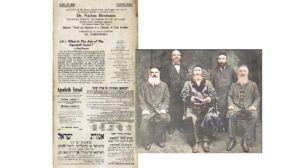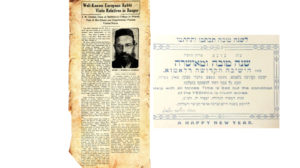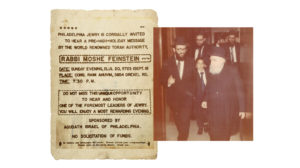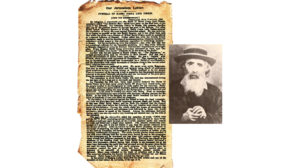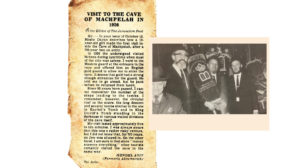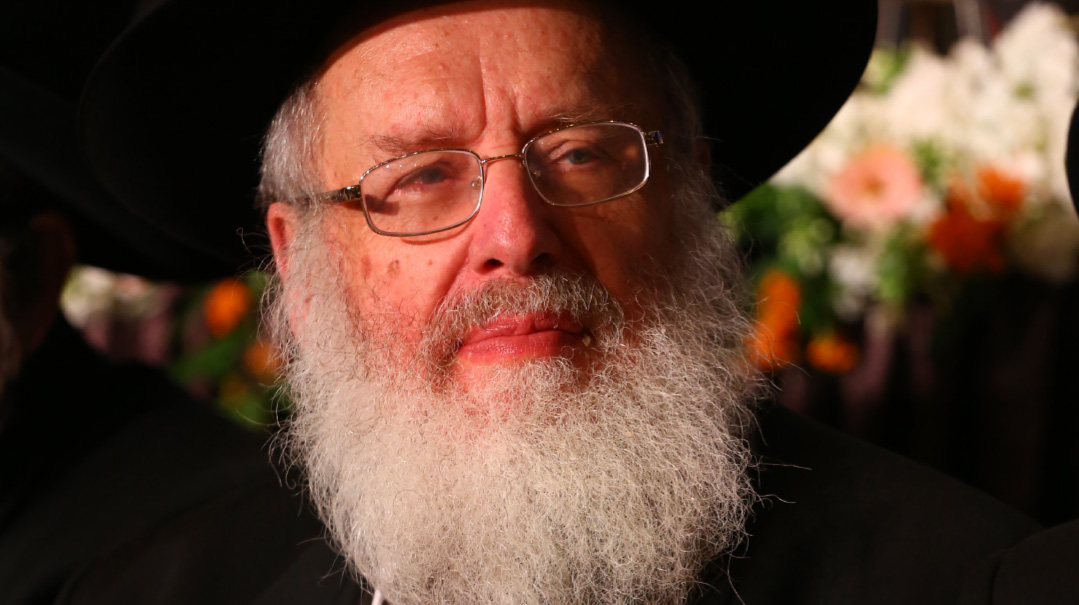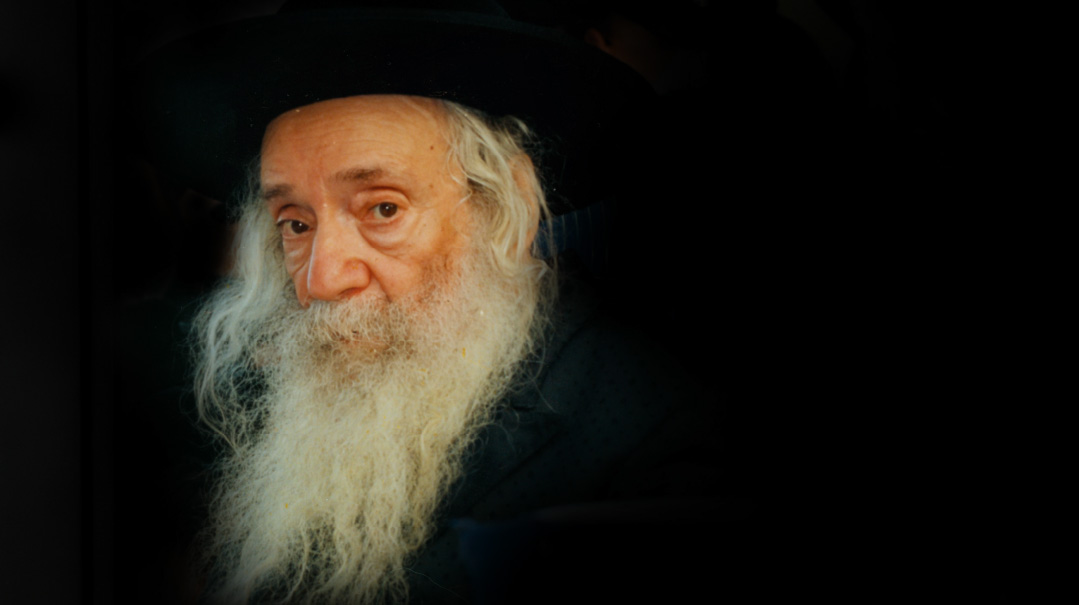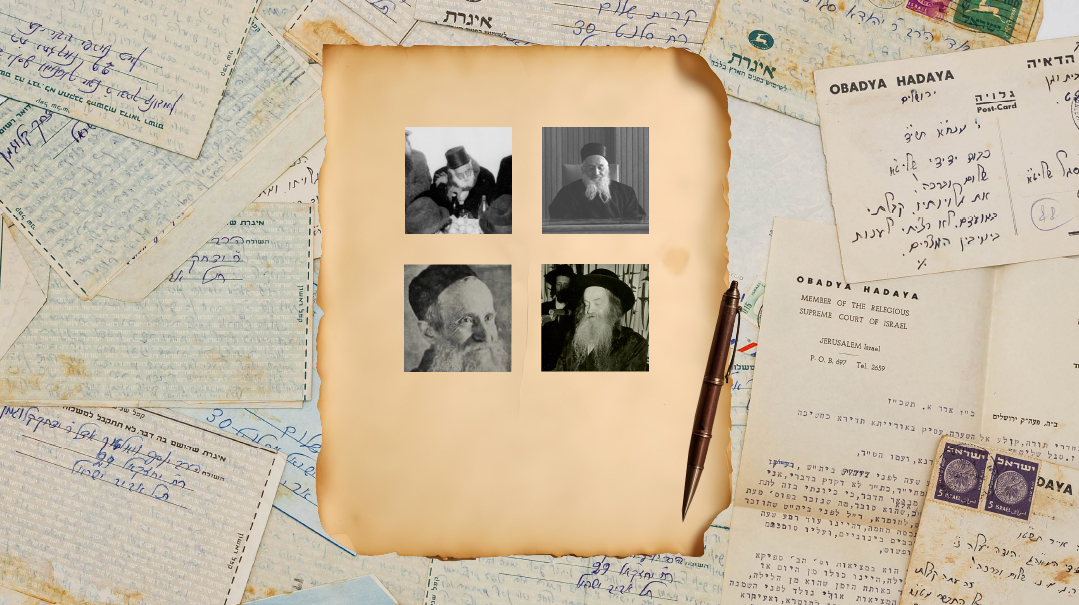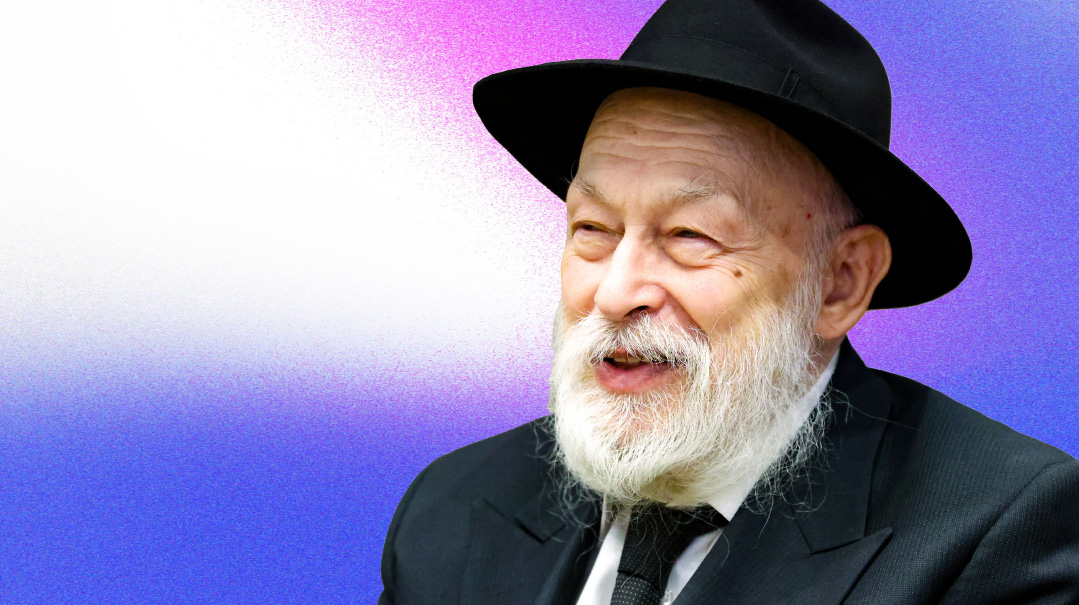Every Last Nazi

With his targets in their nineties, the end of the hunt is near — but Eli Rosenbaum is determined to keep searching until time runs out
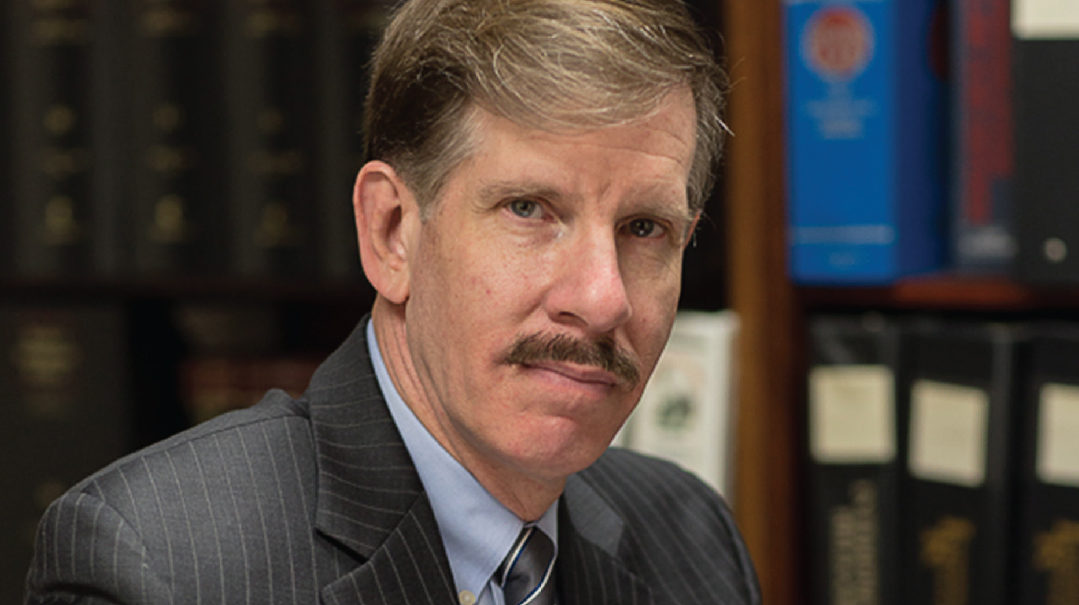
Could this be the last one?
Last month, Friedrich Karl Berger, a white-haired, 95-year-old resident of bucolic Oak Ridge, Tennessee, was expelled from the United States.
Berger, known to his friends and family as “Fritz,” lost his appeal of a federal immigration judge’s order that he be thrown out of the country and sent back to his native Germany. The judge determined that upon being admitted to the US in 1959, Berger had concealed his past as an armed guard watching over concentration camp prisoners during the Holocaust. His hopes of spending his final days in the comfort of his rambling suburban American home were dashed.
“We proved that he took part in the death march from this sub-camp near Meppen, Germany, back to the main camp of Neuengamme,” says Eli Rosenbaum of the United States Justice Department.
Will Berger be the last German war criminal to be deported from the US?
Rosenbaum, whom British historian Guy Walters called “the world’s most successful Nazi hunter,” has heard that tune before. He recalls a 1980 Newsweek article about a Nazi on trial in Germany headlined “The Last Nazi.”
“We laughed,” recalls Rosenbaum, who at the time had just joined the Office of Special Investigations at the Justice Department. “We were very busy in our office. There were lots of other Nazis. And we would see these headlines every few years.
“But I am here to tell you that at long last, in the year 2021, with all participants of the Nazi crimes at least in their nineties, the end is near,” he tells Mishpacha. “Whether the Berger case will be the last Nazi, we don’t know. It may be. But we are still investigating, and we want all the perpetrators out there to know that it will never be safe for them in the United States.”
Rosenbaum has a long title — dare I say tedious? — to go with his glamorous-sounding job. Since the Office of Special Investigations was merged with another bureau and given the broader mandate of going after war crimes wherever they happen, he is the “director of human rights enforcement and policy” in the Human Rights and Special Prosecutions Section of the Criminal Division in the United States Department of Justice.
In the media, though, he is simply the “Nazi hunter.” As is usually the case with such simplifications, Rosenbaum does not like that moniker, saying it romanticizes his work, much of which is desk-bound drudgery, and minimizes the work of others in the field.
“It is not an appellation that I care for,” he says, “because it suggests that the work prosecutors and investigators do in this area — and I have done both, I am an investigator and a prosecutor — is a sport of some sort, that it is a game or a movie.
“In fact, it is very serious, professional, and often heartbreaking law enforcement work. I would not want people who do other kinds of law enforcement to think that they are not operating on the same level of professionalism and the same level of skill and ethical responsibility. They are.”
Son of a Liberator
Eli Rosenbaum, who is Jewish, was born in 1955 in Westbury, New York, to Irving and Hanni Rosenbaum. Irving Rosenbaum had escaped from his native Dresden, Germany, in 1938, along with his parents and siblings, and immigrated to the US, where he joined the army.
“My father graduated high school in Newark, New Jersey, and then started paying this country back by going into the United States Army,” Eli said in a recent podcast. “And he was sent to North Africa and to Europe, and served in the Third Infantry Division. And then when they realized that they actually needed German speakers, they transferred him to a psychological warfare branch unit in the US Seventh Army.”
Eli’s father was part of the team that interrogated German prisoners of war, and was dispatched to Dachau in a jeep the day after its liberation when his commanding officer discovered the atrocities that had taken place.
It was a period of Irving’s life that he never discussed with his children, Eli says. He recounts the one time the subject came up, when he was 14 and his father was driving the two of them through a blizzard in upstate New York.
“My father tried telling me about what he saw,” he says. “But he just couldn’t do it, he couldn’t speak — he totally choked up and started crying. Although my dearly beloved father lived until 2007, and we often spoke about my work, that was one place we couldn’t go.”
Rosenbaum, who lives with his wife Cynthia and daughters on Long Island, expresses his weariness with a public used to the Nazi villain in movies and TV shows, confronted by the courageous survivor in a dramatic court case. The vast majority of survivors, he notes, would never have the fortitude necessary to face their Nazi prosecutors. He points to one case he had to abandon because the key witness could not bring himself to testify.
“The survivors are the heroes of our prosecutions,” he declares. “These are men and women who have testified in our cases and gone on the witness stand in court, in public, to speak of the terrible suffering that they and their families endured. In the course of testifying, they reopened these terrible psychic wounds that can never heal, just so that our judges can begin to understand the reality of Nazi criminality.”
A tall, mustachioed man of 65, Eli Rosenbaum uses his broad knowledge of the law, relentless pursuit of thousands of tips, and a stable of historians and investigators to track down the remnants of Western civilization’s worst actors and bring them to justice. He has brought 133 cases against Nazis, winning 109 of them. Most of the ones he lost, Rosenbaum says, ended that way because the suspect died or was found unable to stand trial.
“In my work, the best reward I ever got was a hug from a survivor after he testified,” he says. “It doesn’t get better than that.”
Nazi-Hunting Evolves
The means of avenging the worst massacre in modern history has taken various forms in the 76 years since Hitler took his life in the Führerbunker. From the chaotic early postwar days, when survivors confronted their tormentors and killed them, to the cloak-and-dagger ’50s, when ex-Nazis died in mysterious and unexplained accidents, the game of Nazi hunting intially danced on the edge of legality as lawmen grappled with the ultimate war crime.
In the immediate aftermath of the war, survivors such as Tuvia Friedman hunted down the Nazis, killing them without hearings or trials. Matters formalized almost immediately, though, and legal minds from among the Allies gathered in 1947 in Nuremberg to establish an international tribunal. They hanged ten top Nazis, sentenced dozens of others to death and hundreds to prison sentences of varying lengths.
But the world soon ceased to care. The enthusiasm of the Allied powers to try German war criminals dissipated almost immediately. Realpolitik was at stake, and the need for German expertise on rockets and military hardware took precedence. Any ethical dilemma of using war criminals to prevent the wars of the future was brushed aside after Communism overran Eastern Europe and the Soviets announced that they had the atomic bomb.
“The hot war in Europe was over, and now the Cold War predominated,” Rosenbaum notes. “East and West both saw the parts of Germany they controlled as the front lines in that war, so both sides started to overlook Nazi backgrounds, and the prosecutions largely came to an end.”
Another complication was the ratline, the underground escape route that allowed war criminals to flee to other countries, some to South America where they were safe under the autocratic governments that ruled there. (Rosenbaum cautions, though, that widespread stories of Nazis fleeing en masse to South America are myths designed to divert attention from the German and Austrian villages who knowingly hosted these criminals for decades after the war. While infamous Nazis such as Eichmann and Mengele did move there, the vast majority remained in their hometowns.)
Thousands of Nazis also immigrated to the US by hiding their wartime exploits. An attempt by the Justice Department to expel them fizzled after the West German government furiously lobbied the State Department. The newly created space agency NASA engaged Wernher von Braun, a leading engineer in Hitler’s race to be the first to develop intercontinental missiles, for the Americans’ own race against the Soviets. Although von Braun would die before he could be confronted with his past, another Nazi rocket scientist working for the US, Arthur Rudolph, would not be so lucky.
The World Wakes Up
As people born after the war began digging for information, and older people began opening up, the enormity of the crimes started to sink in, and the demand for justice grew. The Eichmann trial in Israel in 1960 helped push this along. Younger Americans began to question: What of the Nazis who escaped to the United States?
It emerged that the US Immigration and Naturalization Service knew very well there were war criminals under its jurisdiction, and kept detailed information on them. In 1978 this came to the attention of Congresswoman Elizabeth Holtzman, a young New York Democrat, who was appalled.
“There was a hearing with the immigration commissioner and I asked him: Is it true that you have a list of alleged Nazi war criminals living in the United States?” Holtzman recounted years later. “And he said yes. I almost fell out of my chair.”
She sponsored legislation that would later be known as the Holtzman Amendment to the Immigration and Naturalization Act, obligating the federal government to strip war criminals of their US citizenship and deport them from the country. In 1979, the Justice Department set up the Office of Special Investigations (OSI) to enforce this law.
Eli Rosenbaum was then a Harvard Law student. He heard the news of OSI’s creation and was electrified. Although it was already late at night, he immediately looked up the phone number of the Justice Department in Washington and called. Eli told the operator who answered that he wanted to work in the newly created office in the summer as an intern.
He was hired for that internship the next day, and was hired in a permanent capacity as a prosecutor upon his graduation from law school. He now warns the summer interns at the Justice Department, “Be careful. My whole career is a summer internship gone awry.”
Rosenbaum’s first case after joining OSI was that of Arthur Rudolph, the aforementioned Nazi rocket scientist. Like Wernher von Braun, Rudolph parlayed his experience in the German rocket war effort into a handsome sinecure with the US space program. Rudolph is credited as the father of the Saturn V rocket that launched the Apollo modules — and took the first man to the moon.
But Rosenbaum investigated Rudolph’s work as head of the Nazi V-2 factory at Nordhausen and uncovered some very disturbing information. The SS provided the Nordhausen operation with abundant slave laborers, who worked in conditions so grotesquely inhumane that death was a daily byproduct.
“When prisoners died, Rudolph would tell the SS to send more,” Rosenbaum says.
But all this was swept under the rug when the victorious Americans instituted Operation Paperclip, a program to recruit German scientists, engineers, and technicians in a bid for superiority over the Soviet Union during the Cold War.
By 1980, however, Rudolph was vulnerable. Rosenbaum himself confronted Rudolph with the evidence against him. Rudolph could have waged a court battle that would have dragged on for years — but to save that time and expense, he simply agreed to relinquish his US citizenship and return to his native Germany. In what would become a sadly familiar outcome, however, the German authorities did nothing.
“They investigated him, and — this is typical — they didn’t prosecute,” Rosenbaum recounted later.
Familiar Refrains
The prosecution of Arthur Rudolph — and the lack of prosecution in the case of Wernher von Braun, for that matter — bring certain ethical issues into focus when placed in the context of the Cold War. After all, the US was in a life-or-death struggle with the Soviet Union, and the Communists were not good guys. Why shouldn’t the US make use of German expertise, whatever lies behind it?
“I remember as I was working on the Rudolph case, I was thinking, ‘Well, what about von Braun?’ There certainly was evidence implicating him,” Rosenbaum says. “He had died by that time, but it raises a question about what is to be done in these national security situations. It is very easy for us to be sitting here in 2021 and say, ‘They should not have used von Braun,’ or ‘They should not have used Arthur Rudolph.’ I do not know what the answer is. I do know that by the time we found Rudolph, his services were no longer needed by the United States, and I was pleased that the Justice Department supported us taking legal action against him.”
Rosenbaum says he was disturbed to see that in all the decades of his scrutinizing records — “and we went through a lot of records,” he notes — he never came across, even once, any evidence of a US official agonizing over the morality of offering a get-out-of-jail card to a mass murderer in exchange for his services to the country.
“If they had said to me, ‘Look, this was life and death. Stalin was developing a new type of atomic weapon, and we had no real rocketry capability. If you didn’t use this guy, then Stalin would have been able to take over the United States’ — I would have been less uncomfortable with that position, because that meant they actually wrestled with the moral question. But I have never seen that yet.”
After the Rudolph case, Eli plunged himself into his work with a passion, which often resulted in long days, working weekends away from his young family — and frequent, grueling interviews with survivors about their experiences. In 1984, Rosenbaum left the Justice Department due to burnout. He then took a position with the World Jewish Congress. It was there that he ferreted out incriminating information about Kurt Waldheim, a former UN secretary general who was then running for the presidency of Austria.
Despite the fact that Waldheim had ascended to the world stage, he had somehow managed to conceal his past as a Wehrmacht officer during the war. But then his carefully cultivated image as a peacemaker was torn to shreds when a wartime photograph emerged, unmistakably showing him in full uniform with other German officers on a battlefield in the Balkans. His protestations that he knew nothing of atrocities and that he was forced to follow orders were by then a tired, familiar refrain — but apparently sufficient for Austrian voters, who elected him president.
Americans were appalled, and due to the evidence Rosenbaum helped uncover, Waldheim was banned from setting foot on US soil, even in his official capacity as a head of state. Rosenbaum was moved to rejoin his old office in the Justice Department in 1984, this time as deputy director. When his boss retired, he stepped into the director’s role.
The March of Time
The indifference that Austrian voters showed during the Waldheim affair, a sentiment also common in Germany, was a big obstacle to Rosenbaum’s efforts, but it has gradually faded with time. He got a big boost from a German judge who ruled in 2011 that infamous Sobibor concentration camp guard John Demjanjuk could be prosecuted just for serving in a concentration camp, even if there was no evidence he actually participated in atrocities. The presiding judge, Ralph Alt, said it was enough to show that Demjanjuk played a willing part in the “machinery of destruction.”
But that ruling, and the change in German attitudes, arrived a tad too late. Rosenbaum says that era marked a sharp drop-off in bringing live Nazis to justice. His biggest enemy now is the march of time.
“Starting in the early 2010s, we saw a rapid decrease in suspects and defendants,” he said. “Those who were able to hang out that long almost all died around that time. It was very frustrating.”
In the case of “Fritz” Berger, who had been assigned to oversee prisoners at the Neuengamme concentration camp system in Germany, a federal prosecutor echoed that German judge’s ruling and declared Berger to be “part of the SS machinery of oppression that kept concentration camp prisoners in atrocious conditions of confinement.”
Building the case against Berger required, as it always did, hundreds of hours of combing through musty records in archives of various countries. But Rosenbaum’s team was aided this time by the providential find of a Nazi ship that had been sunk by the Allies in 1945. On board the wreck was a set of SS documents that identified guards in the Neuengamme camp, including Berger.
Hunting down and expelling Nazis is popular in civilized society because they are perceived as villains. But when the local TV news broadcasts footage of the Nazi under arrest, he’s no longer a man with steely blue eyes wearing jackboots and a pressed uniform; he’s usually a smiling white-haired gentleman. Neighbors would invariably describe the Nazi as family-oriented and civic-minded, a citizen who flew an American flag on July Fourth, volunteered on the school board, and coached the local little leagues.
Rosenbaum confronts these kinds of questions all the time, he says. Would he prosecute a former Nazi who may now be vital to American national interests, such as von Braun, the NASA scientist? Or conversely, how just is it to devote so many resources into deporting an elderly Nazi, who nowadays isn’t bothering anyone, to live out his remaining life in an old-age home in Germany?
Rosenbaum is unequivocal on this issue. He recalls that when he first arrived at the Justice Department, he was urged to “work as fast as you responsibly can” to bring the Nazis to justice.
“The mere passage of time does not reduce in any way the level of culpability,” he insists. “To do nothing would be to reward someone for their success in eluding detection all these years. Aside from that, the most important reason is for deterrence. It is very important that we send the message out to would-be participants in crimes against humanity and genocide that if you dare to involve yourself in such crimes, you won’t just have to look over your shoulder for the next few years, you will have to do that for the rest of your life — into old age, if necessary.”
But he acknowledges the limits of his mission.
“Is there really justice in these cases?” he questions rhetorically. “Probably not — well, definitely not. Full justice is impossible. I would say the same for any murder case. The only true justice is to bring the victim back. So you seek the kind of justice that you can get.”
A Prosecutor’s Dream
How would Rosenbaum prosecute Hitler, hypothetically? This is a question he says he has pondered for decades.
“In 30-something years of interviews, you are the first person to ask me that question,” he says. “I have been waiting for it.”
Rosenbaum explains that the historians on his staff have shown that although Hitler’s subordinates would all later plead that they were only following orders, there is no written record of orders from the top.
“Those are the orders he would have given orally,” Rosenbaum says. “Prosecution would instead have to focus on finding documents that show underlings reporting to him on the genocide and mass murders and him raising no objection.
“It would be a prosecutor’s dream to cross-examine Hitler,” he says. “I think Hitler would say in his defense, ‘Who are you, United States of America, to prosecute me, when you murdered so many Native Americans and enslaved African Americans for centuries? Where is your moral authority?’ I think he would try to put the prosecutors on trial. The Nazis in Nuremberg tried doing the same to the Soviet prosecutors — ‘How can you try us for mass murder? Look at the Katyn massacre [of Polish officers ordered by Stalin].’
“It didn’t work then, and it wouldn’t work for Hitler either.”
Hitler, of course, escaped earthly prosecution. The low-hanging fruit that remained were the thousands of rank-and-file underlings who infiltrated back into polite society. Rosenbaum prides himself on having exposed more Nazis and winning more cases than all the other countries of the world combined.
“All of these investigations are very complex, they all take a lot of time to put together, and the Berger case was no exception,” Rosenbaum says. “But you know, without all those cogs, the machinery of annihilation would not have operated. The Nazis needed every single participant to do his or her job.”
Rosenbaum recalls one “very senior Nazi perpetrator” who served in a death camp telling his interrogators later, “Listen, if you are going to prosecute me, I understand that. But you have to understand that it wasn’t just me, it was everyone.’
“The camp operated as a chain of command, and it required every single person to do his part in the chain or it stopped,” Rosenbaum says. “I would also add that it was those small cogs, like the guards, who were the perpetrators that the victims saw. If you ask a victim in the camp who Adolf Eichmann was, they wouldn’t know. His name was meaningless.”
In the Eichmann trial, the Nuremburg trials, and every trial of Nazis since, the accused have produced the same excuse: They were only following orders. But Rosenbaum has a ready comeback.
“Their fallback answer is always, ‘Well, it was bad there, but I had no choice,’ ” he says. “My response to them is always, ‘Did you request a transfer?’
“To a person, they admit, ‘No, I never did.’
“You know why? Because persecuting unarmed civilians, especially emaciated ones, was a nice, safe job during the war.”
So while Rosenbaum will continue tracking down the cogs that made the wheels turn and trains run, he doubts there is any big game left to snag.
“War and the crimes that are associated with war tend to be perpetrated by surprisingly young people. Look at how old Adolf Eichmann was in, say, 1942 — he was 36. But even to have been in your thirties during World War II — the odds of one of those people still being alive are between slim and none.”
Rosenbaum said he has a “fantasy” of future lackeys in tyrannical regimes having a moment’s pause when they are given a reprehensible order. “They should remember that they once saw on television some white-haired old man, some Nazi criminal, hauled into court. And they should say to themselves, ‘Oh, my, I can’t do that. Am I going to have to worry about prosecution when I’m in my nineties? No way.’
“Now, will that ever happen? I don’t know. But we prosecutors are naive in one way, in that we believe the prosecution yields some deterrence.
“The most important reason to continue pursuing justice in the Nazi cases is to send a message to the would-be perpetrators of war crimes and crimes against humanity in the future that what remains of the civilized world will pursue them for as long as it takes — even if it takes the rest of their lives, and even if they flee thousands of miles to places like the United States.”
(Originally featured in Mishpacha, Issue 854)
Oops! We could not locate your form.

